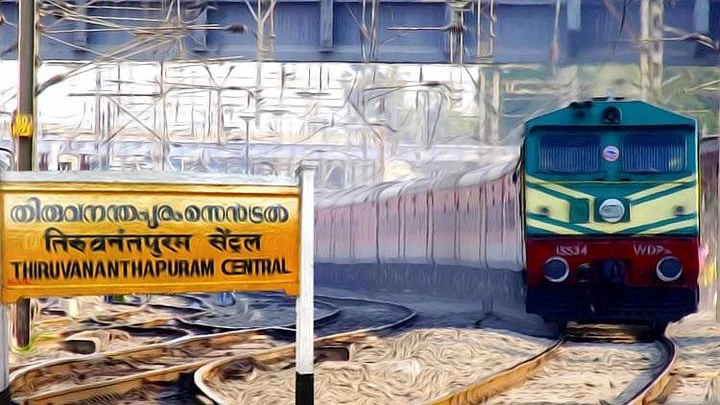For Haseena, who is in her late sixties, home for the last 34 years has been the four walls of the Mental Health Centre in Thiruvananthapuram.
She was admitted here in 1983, but because she has shown no signs of improvement and hasn’t cooperated with her doctors, her whereabouts could not be traced. Fathima doesn’t remember her hometown, her family or any details that could help identify where she hails from.
She is one among the 67 women from across India housed at the government-run healthcare centre in Oolampara.
Twenty-seven of these women suffer from chronic illnesses, and hence, the chances of them reuniting with their families are slim.
Language is the sole identity for many patients, for they don’t even remember their names. Although in some cases, even this isn’t much of an identifier – after all, Hindi is the common language for several states in the country.
Most mentally ill people from other parts of the country are housed here for a rather strange reason – the city is the last stop for many trains coming into Kerala from other states.
“The patients here are not mentally stable, and [potentially abandoned by their families] may have accidentally boarded a train whose last stop is Thiruvananthapuram. The police would have then seen them wandering around the station and would have produced them before the Chief Judicial Magistrate. The court then sends them here. There are patients from West Bengal, Rajasthan, Madhya Pradesh. But most patients are from Tamil Nadu,” said Jeena, a nurse who worked at the centre until a few days ago.
Most of the staff knows Hindi, and for other languages, like Tamil, Telugu or Kannada, we arrange for interpreters to help us. But in certain cases nothing works … The patient may be speaking a tribal language or a dialect that exists only in the most remote villages.Jeena, former employee of the centre.
She added that due to the stigma associated with mental illness in the country – it is still believed in some parts that people fall ill because the gods don’t like them – patients are often sedated using a strong drug and then abandoned.
While Haseena has been housed in a ward, Geetha has lived in a single cell since 2001 – her illness has not subsided and she is prone to bouts of violence.
For two other women, both from Andhra Pradesh, who are HIV positive, the centre is yet to find a police escort to accompany them to their village. One is 40 years old, while the other is 50 years old.
We have applied for a police escort, but the Commissioner’s office turned it down saying that personnel were not available. The women were ostracised by their village for they were HIV positive … And it is mandated that patients only be sent back with an escort.Member of the hospital staff, talking to The News Minute
In November, the Mental Health Centre successfully reunited one patient with her family.
Forty-year-old Rameela, who came to the centre with her one-and-a-half-year-old son was sent back to her husband in her village in Rajasthan.
Dony Solly, a woman from Madhya Pradesh, was sent home six months ago.
She developed a tumour in her ovary and her health deteriorated sharply. An emergency fund was arranged for her journey.Jeena, former employee
In the male ward, there are around ten patients who have been housed in the centre for years now.
Once their condition is somewhat stable, we ask them for their whereabouts and try to contact their relatives back home. Sometimes the details they give us are lucid and correct, other times they are not. When we contact their families, some are happy to take them back, others refuse point-blank. Some are too poor to travel and say that they are happy to receive the patient if we can pay for their travel expenses.Dr Sagar, Superintendent in Charge
The major problems that come in the way of bringing patients and their families together again are the lack of funds – to trace the patients’ relatives and for the return journey – and the fact that police personnel or the centre’s staff are required to travel with the patients.
In many cases, the centre is forced to arrange funds for the patients’ journey back home.
Dr Dinesh, who treated Rameela and initiated the procedure to reunite her with her family, said, “This centre is a pioneer in mental health treatment in the country. Most people who come to the state in order to be treated are sent here. The number of patients we treat is quite high. Moreover, the plight of patients assumes a special significance against the backdrop of the Mental Health Care Act 2017, which clearly lays down their rights.”
(This article was originallly published on The News Minute)
(Breathe In, Breathe Out: Are you finding it tough to breathe polluted air? Join hands with FIT to find #PollutionKaSolution. Send in your suggestions to fit@thequint.com or WhatsApp @ +919999008335)
